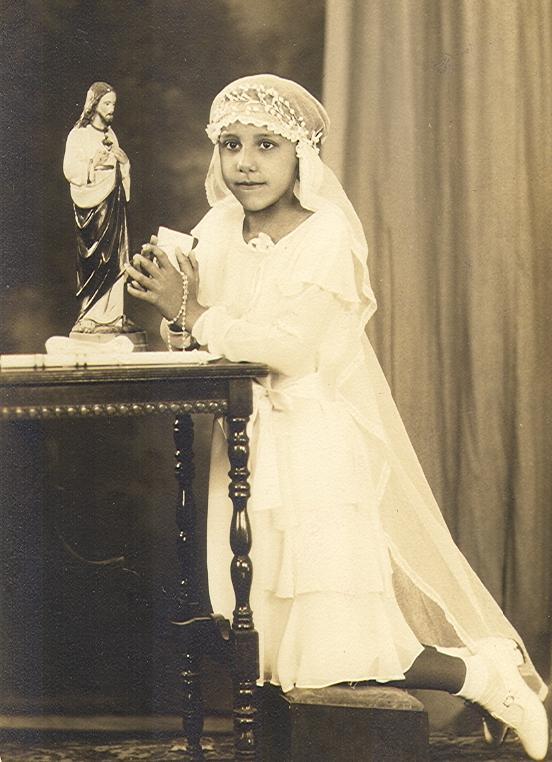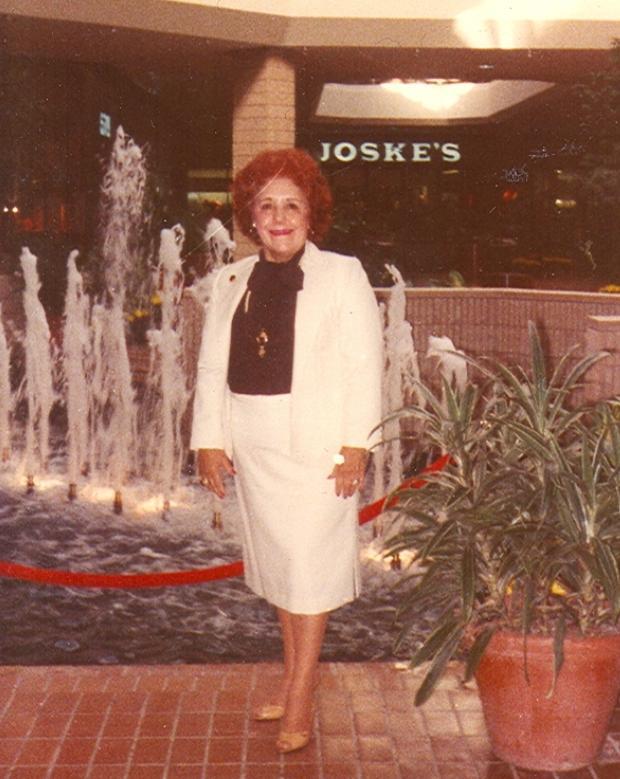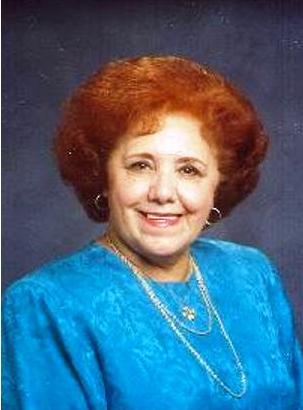Lucy H. Villarreal


Where did you live during the Great Depression?
I lived in the orphan home called the St. Peter and St. Joseph Orphanage.
Did you know what was going on during the Great Depression?
I did not know what was going on because I was a little girl who kept secluded from everying.
What was it like living in a orphanage during the Great Depression?
It was good because I would learn values, respect for others and of course math, English, and etc.. I would learn the Catholic religion almost
every day. I remember when I was in there would love Sundays because they would serve wonderful pancakes and that was
what everyone would look forward to every week.
What did you do after you left the orphanage?
I went into junior high school called Washington Irving then I finished. After I finished junior high school, I
attended Fox Tech High School until the 11th grade but I did not finish because I had to work.
While attending school, did they teach or talk about what was going on at the time?
The teachers would not say much about it, they would do what they had to do and leave.
Was it hard looking for a job during the Great Depression?
During that time my parents use to trade with a store which was ran by Paul Marrou. Mr. Marrou was so nice,
he hired me when I was 13 or 14 years old. I went ahead and learned the retail business.
What did you do while working?
I went to a business school where it would teach me how to type and things that I had left behind from the
11th grade.
Did you work for other companies?
After leaving Paul Marrou, I went to work with Sugarman brothers for about a year. I then went to Wilfa Marks.
Did you live in poverty?
No, we lived in a little house with a small kitchen, living room and one bedroom.
Were there a lot of good resources available such as food, gas, water and clothes?
I remember when I use to go with my mom to go stand in a line where we use to get a month's supply of food.
When we had food that someone else wanted, we would trade with our neighbors.
Did your family suffer from any financial struggles ?
Yes, we were very poor. My mother worked hard to give us what we needed although some of us can be ungrateful.
How long did it take your family to get out of the financial slump?
Until after the Great Depression because the banks had no money, other people would say, since my whole family
worked, we basically had to support ourselves.
Were you able to afford food?
Sometimes because we would have something that a neighbor wanted and my parents would trade off with them in
return of food.
Did you ever hear about any banks having no money?
I would hear stories that people would lose hundreds of dollars because they trusted the bank. My mother did not have
a bank account because she did not have money to put into it.
Did your family ever receive government aid ?
Yes, the government were the ones that would give the food when we went to go stand in the food lines .
What would you use to cook your food?
We use to have a wooden stove. It was not like the ones we have today, but I think it cooked better than
the stoves of today.
Did you ever live anywhere else during the Great Depression?
No, my mother never could afford to move us anywhere, she was just trying to keep us well kept.
Were there any big changes that you noticed in San Antonio, duing the Great Depression?
When Franklin Roosevelt became president, there were so many changes such as job opportunities.
Did you have television back then?
No we had listened to the radio a lot but even if we did have television, we could not afford it.
Did your family have a car back then?
No, we could not afford it. We mainly walked everywhere.


St. Peter and St. Joseph Orphange
is a website that gives all the information that you need to know about the orphange such as history, programs
and services.
Great Depression is a website that gives you historical information about the Great Depression.
Financial Struggles It provided information about the Great Depression such as the causes of unemployment and graphs to prove the economic slump.
Government Aide The website provides a list of all the government aides that Franklin Roosevelt tried to give to the United States, some of these were successful while some were not. It also gives you a description of the program and outcome.
Foodline It provides you an image of what a foodline would look like during the Great Depression.